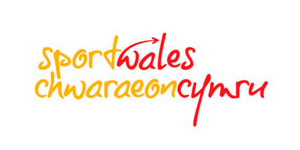How The Black Swimming Association is tackling barriers across Wales
The Welsh Sports Association (WSA) is proud to support and celebrate Black History Month, and this year we are excited to feature member organisation The Black Swimming Association (BSA) and its vital work and collaboration across the sport and leisure sector in Wales.
The BSA is a non-profit organisation set up to diversify the world of aquatics through education, advocacy, support and research, working with partners across the aquatic sector to raise awareness of the importance of water safety, the health benefits of aquatic activities, and the barriers faced, within underrepresented communities.
Learn more about the BSA and their work here.
“We know that people from Black and Asian communities are disproportionately affected by drowning and incidents that occur in and around water,” BSA Wales National Programme Manager, Steph Makuvise, told the WSA.
“Through our engagement programmes we aim to ensure that these communities ‘find their place’ in the water and kickstart their participation in aquatic activity. We are the bridge between disengaged communities and the wider sector, and we strongly believe that everyone, no matter what background, should be comfortable with water and have positive experiences when engaging with aquatic activity.
“In addition to this, often, water safety messages don’t reach these communities, so it is our mission to ensure that these messages not only reach Black and Asian communities but are understood and shared.”
The BSA has delivered crucial initiatives and research amid its collaborative, on-the-ground approach with sector partners in recent months and years, for example publishing its widely praised #ourswimstory research.
The WSA was present at the launch of #ourswimstory, an incredibly important piece of research.
“#OurSwimStory is a landmark research project, exploring the lived experiences with water safety and aquatic activity of over 1,400 adults from Black, Asian and other ethnically diverse backgrounds,” explained Steph.
“The research identified significant barriers to safe aquatic engagement and presented recommendations aimed at increasing water safety awareness and aquatic participation.
“The findings from #OurSwimStory underpin everything that we do at The BSA,” she continued, “from our own delivery programmes to our collaborations with organisations across the sector. In November of 2023 when we launched the research in Wales, we ensured that we invited sector partners to not only hear the research, but to think about what actions we can take forward around the recommendations.
“The research has also given us insight into what other aquatic activities communities want to engage with, outside of swimming. With this we have been actively recommending other aquatic activities for communities to take part in that are local to them.”
The BSA’s commitment to diversifying aquatic participation is matched by its dedication to increasing diversity in workforce, also one if its strategic ambitions.
The organisation works hard to upskill the current workforce so that they’re equipped to support participants from diverse backgrounds who may have more needs to be met and barriers to breakdown than other backgrounds.
“We have collaborated with Cardiff Met Sport, Leisure for Life and Rhondda Cynon Taf Council to upskill their aquatic workforce,” Steph said.
“This has provided The BSA with the much-needed support to facilitate programmes as well as educate staff on how to adapt delivery when teaching participants from diverse backgrounds.
“We have also recently collaborated with Swim Wales, through a workshop aimed at educators. This session proved to be valuable in ensuring that educators who are facilitating courses are comfortable and equipped to adapt delivery when engaging with participants from diverse backgrounds.”
Other collaborations have seen The BSA work alongside locally trusted third sector organisations, such as The Centre for African Entrepreneurship, Race Equality First, Women Connect First, African Community Centre, Hayaat Women Trust, and Sub Sahara Advisory Group, to attract the right participants to delivery programmes and encourage diverse communities to engage with aquatic activity.
Appropriately, the theme of Black History Month 2024 is ‘Reclaiming Narratives’, a commitment which includes correcting historical inaccuracies. The BSA strives to tackle inherent systemic inequalities present in our sector, evidenced by its most recent collaboration.
“The BSA takes pride in showing leadership, promoting inclusion, collaboration and innovation across all that it does,” confirmed Steph. “We are ‘Reclaiming the Narrative’ on correcting historical inaccuracies, taking control and challenging narratives.
“Our most recent collaboration with The RNLI and Portsmouth University aims to do this. This groundbreaking collaborative research project aims to dispel the myth that ethnicity prevents people from floating.
“This research is aimed at understanding the metrics behind how people from Black and Asian heritage float, factoring body composition, and their ability in the water. Essentially, we are ‘busting the myth’ on the age-old thinking that ‘black people can’t float because they have heavy bones’.
“This research will help with uncovering social and cultural challenges, better understand unique experiences, and ultimately help communities find their place in the water safely,” affirmed Steph. “The findings will help inform on the RNLI’s float advice by making sure it speaks to and for everyone within society.”
Another key part of the organisation’s work is its water familiarisation programme, Together We Can©, aimed at empowering, emboldening & inspiring communities in Cardiff and Swansea to build confidence and gain vital water safety knowledge.
Importantly, this programme includes people of all backgrounds, affirming the initiative’s commitment to ensuring that everyone is safe around water.
“Typically, the programme engages with participants who are aquaphobic, don’t swim because of cultural or religious reasons, or simply don’t see aquatic activity as being for them,” Steph explained.
“On this programme, over the course of five weeks, we provide vital water safety knowledge that can potentially keep individuals safer in and around the water. Alongside this important aim, we support and encourage individuals to find their personal connection with water, taking them on their own individual journey with swimming, to open a world of opportunities to engage and enjoy being on in and around the water.
“Essentially the programme acts as the bridge between those that are disengaged and opportunities that exist to engage in aquatic activity.”
The WSA is delighted to see organisations such as The BSA undertaking such vital work in our sector, collaborating with colleagues and delivering initiatives and research to diversify and open opportunities to make sport and leisure a safe, accessible space.
We were particularly pleased to welcome The BSA, and Steph specifically, to speak at the WSA’s recent Inclusive Breakfast event, where discussions around promoting an environment where everyone, regardless of their background, feels valued and empowered took place.
“We are really looking forward to what the rest of the year and beyond looks like for The BSA,” Steph concluded. “We’re hoping to strengthen our collaborative partnerships, continue to support the sector in becoming more inclusive when it comes to aquatics, and most importantly supporting more people from Black and Asian communities to find their place and feel safe in, around or on the water.”



















